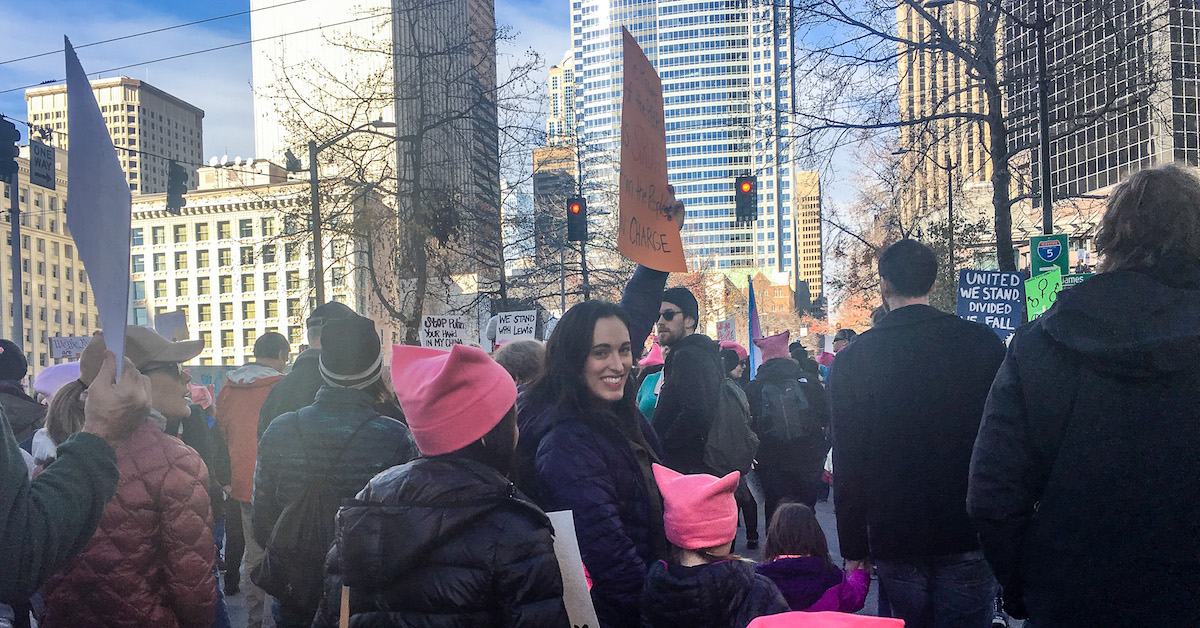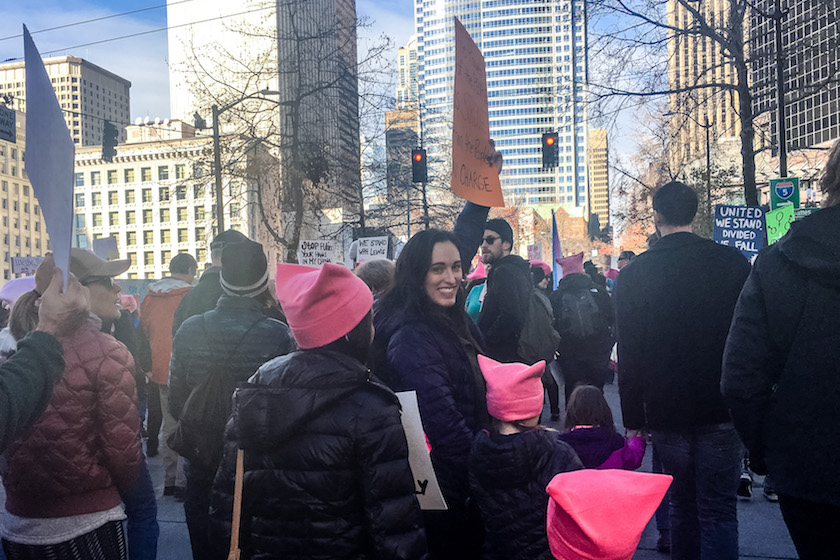
It’s no secret that the U.S. is extraordinarily divided at this moment in history and that many of us wish for greater unity. But lately, there seems to be a rash of people calling for unity while using inflammatory language about those who disagree with them.
And it made me wonder: Do we really want unity? Or do we just want everyone to agree with us?
Because unity doesn’t require agreement.

A few weeks ago, I walked in the Women’s March in Seattle. As a passionate advocate for equality and justice, I marched for the issues that matter most to me personally: gender equality, racial reconciliation and Muslim rights, to name a few.
And it was a phenomenal experience. I got to stand with my fellow Americans and express my beliefs and values while they did the same—regardless of whether we agreed on every point.
My husband and two little kids joined me, toting signs that they made in support of issues that they care about. Even though the kids got tired of carrying their signs after a single block, I was so proud of them.
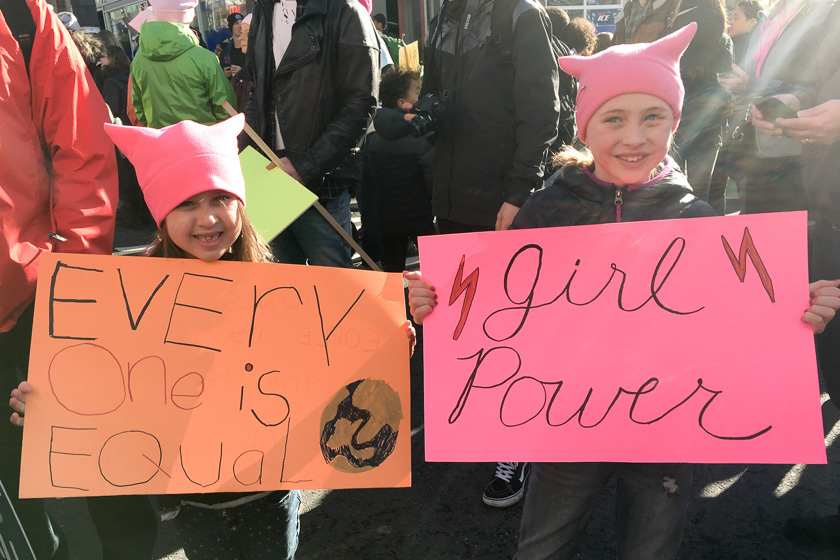
The march was peaceful, uplifting, and empowering. I left feeling encouraged.
Then I logged into Facebook.
The anger directed toward the march nearly bowled me over. I saw people condemn the entire thing and everyone who participated because they didn’t agree with every aspect of the march. One article implied that “real” women would not have marched, which made me wonder in which particular ways I was subhuman. Others said events like these undermined the unity we so desperately need right now.
Much of this pushback came from my own religious community—preaching peace while calling names.
I acknowledge that this goes both ways. Some of the language and behavior at the march was inflammatory. Though I personally saw many more positive, peaceful signs than negative ones, I know that there were some people there who, in their own way, were also preaching peace while calling names.
As I stewed over how to respond, I kept wondering where the greater risk lies. By showing up to march, did I risk implying total agreement with the march’s platform? And by the same token, if I had not shown up, would it have implied that I disagreed entirely with the march and its platform of equity, justice, peace, unity? Again, it cuts both ways.
But I had to wonder, are we so worried about the implications of our presence that we fail to recognize the implications of our absence?
What’s more important to us? That people know what we’re against? Or that people know we’ll love them anyway, even if they stand for the very thing we are against?
Conceptually, love and peace and unity sound so warm and fuzzy. The idea that we should “love across enemy lines” makes for an inspirational t-shirt. But lived out, these things are full of tension and confusion and are often accompanied by condemnation from all sides. That is the risky part of choosing to love anyway—and the difficult part of deciding to love across enemy lines.

But if we really want peace, someone has to step across the lines of disagreement. Someone has to decide to love anyway and start the peacemaking process. Someone has to be the one make the first, dangerous move toward peace.
Not because we agree, not to change other people’s minds, but simply for the sake of peace, humanity, and the unity of our country. Simply because it’s the right thing to do.
I believe that “someone” should be us. Even when there isn’t agreement.
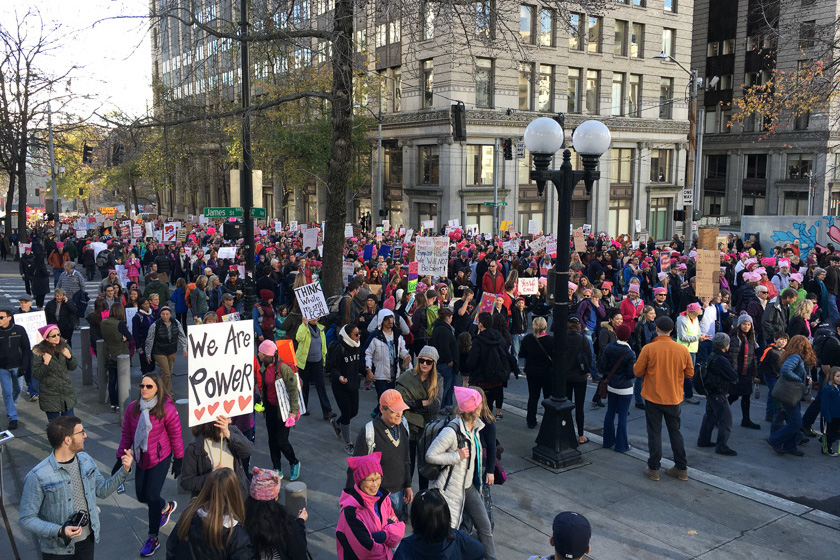
I’ve noticed that sometimes there’s a double standard for loving across enemy lines, especially when it comes to our actions here in the U.S.
Our team in Iraq and Syria do these things all the time—going to the hard places, showing up, loving across enemy lines—and for the most part, everyone loves it. People celebrate when we show up to meet needs “over there”, even in a political situation as messy as Syria. Even for ISIS widows. Even for Middle Eastern Muslims.
Last summer, we even shared a story about serving detainees in a Fallujah prison—many of whom were suspected ISIS affiliates—and almost everyone applauded. After all, that’s what it looks like to “love your enemies.” No one assumes that we agree with people on everything just because we show up to serve them. You accept that our team in Iraq can show up, be united with, and actively love people without agreeing with them on everything.
But what about when someone tries to love across “enemy” lines—or even just party lines—here in the U.S.? Why does all hell break loose when it’s closer to home?
Maybe the distance makes it seem more clear-cut in the Middle East. But let me assure you that it’s not. If feels like it does here. Messy, muddy, tense. Just like here, each decision is weighty and holds wide-sweeping implications for everyone involved.
If we applaud when people show up “over there,” surrounded by militias, tanks, and high powered rifles, surely we can show up here, even when we’re surrounded by political uncertainty, disagreement, and judgment.
That’s what some of us chose to do last Saturday while holding witty signs in support of equality and justice. That may not have been the way you choose to show up, and that’s fine. Because this is about so much more than the Women’s March.
So what is your way? How can you love across “enemy” lines in your world? And how can you support others who are trying to do the same?
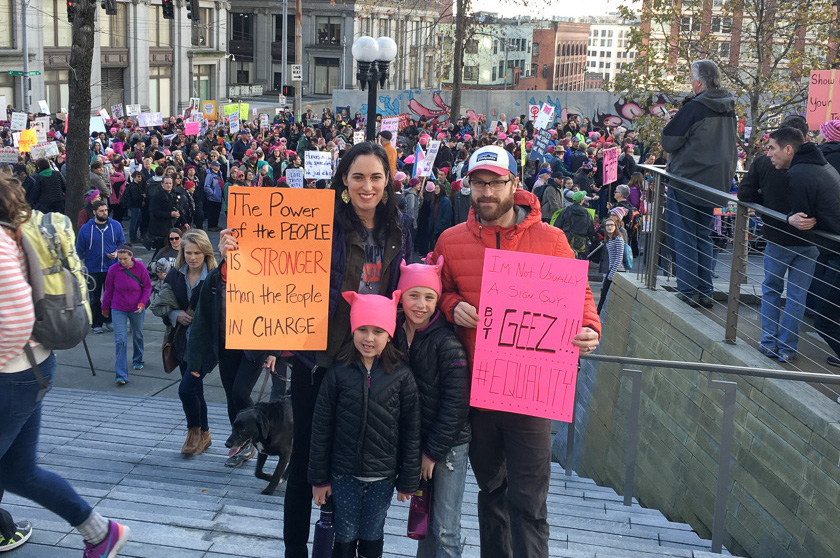
This is the real work of loving across social boundaries. It is muddy water that we must wade into, even though we can’t see the bottom.
So what do we really want? Unity? Do we really want to love across enemy lines, like our t-shirt says?
Or do we want agreement?
Loving across enemy lines is not just for the Middle East. It’s not just for those on the front lines in Iraq and Syria. It’s here. It’s for us. It’s for you.
And it’s tense and messy and full of grays.
Love and unity do not require agreement. But they do demand that we show up. Even when we disagree. Even when the waters are muddy.


